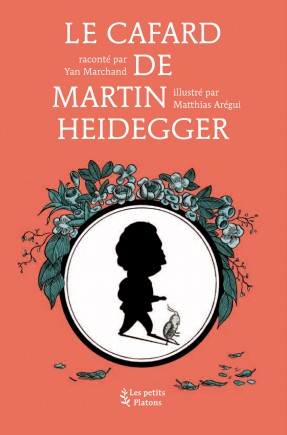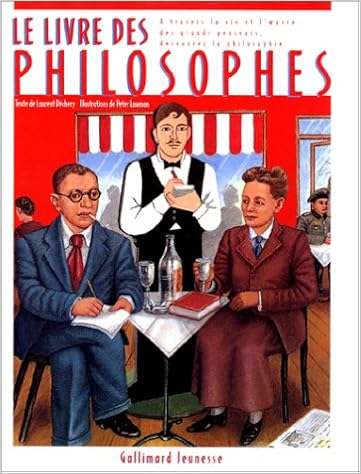 In
September, the year’s rhythm changes. The summer’s visits and visitors have gone. In their place comes
that urgent need to get that work-in-progress not only progressed but blooming
well finished! Yet, even as you slide into blissful solitude, alone with
your screen or notebook, that dreadful anxiety starts to bite and you find
yourself needing what Anne of Green Gables called a kindred spirit.
In
September, the year’s rhythm changes. The summer’s visits and visitors have gone. In their place comes
that urgent need to get that work-in-progress not only progressed but blooming
well finished! Yet, even as you slide into blissful solitude, alone with
your screen or notebook, that dreadful anxiety starts to bite and you find
yourself needing what Anne of Green Gables called a kindred spirit.
There’s a
special value in friends who don’t see writing as a glam & easy task, who don’t
consider you obsessive when you’re maunder about your work and who might even be
able to help with some of your writing problems. So, pondering on writerly
support, I started asking around about the different ways to find such help.
For a start,
I expect there’s a Writer’s Circle near
you. I was once involved in a local group and now sometimes speak at such
gatherings. Each group will have its own energy, ethos, ambience and range of members
and if these combine to offer what you want, that’s great. Many run to a traditional format: a programme
of talks, workshops, competitions & adjudications, with regular manuscript evenings
in between. Such evenings can be interesting and sociable but, in my
experience, this busy pattern doesn’t quite suit a focus on longer fiction.
I’ve also met rather mixed responses to writing for children & young people
and to being published, but maybe that was me. Even so, with patience, you
might find a kindred spirit or two there and can meet up quietly in your own time.
I still have a couple of good friends
and now and again we do just that.
 Or
there’s a “Writing Practice” Group.
The variant I’ve heard about is probably invaluable for providing motivation
and keeping you writing in low or fallow times. Such groups meet monthly,
weekly or whatever suits them. How do they work? One person – not always the
same organiser – introduces a starting point or writing exercise. Then everyone
writes on that topic for a certain time, and afterwards there will be time to
read out work. I’m not sure these groups
aim for publication – this is writing practice just for yourself and for the
pleasure of being like a student again: a blessing when you’ve been got at by too
many author visits.
Or
there’s a “Writing Practice” Group.
The variant I’ve heard about is probably invaluable for providing motivation
and keeping you writing in low or fallow times. Such groups meet monthly,
weekly or whatever suits them. How do they work? One person – not always the
same organiser – introduces a starting point or writing exercise. Then everyone
writes on that topic for a certain time, and afterwards there will be time to
read out work. I’m not sure these groups
aim for publication – this is writing practice just for yourself and for the
pleasure of being like a student again: a blessing when you’ve been got at by too
many author visits.
Many
writers find themselves what’s sometimes called a Writing “Buddy”. Personally,
I am not fond of the “buddy” term as it always sounds sporty and formal and
cheerful and the very opposite of my writing mood.
However, I’ve been asking
around and finding out about people’s writing friends - and “how it works”. The most
formal arrangement was described by my first contact, who met her buddy
for lunch on a regular basis. Originally they’d been tutor and student but now
as friends, they helped each other. Although one was published, the other wasn’t
yet “although
she is a terrific writer, and though they both wrote children’s
fiction, their work was very different, They arrange to meet whenever they have
a WIP that’s stalled, or are near the end of a project or just need support and
they swap draft chapters and talk about the pieces when they meet. “We
are honest (the mss are always covered in red) though we are quite careful of
each other.”
Over lunch, they toss ideas about, treating each other’s
work with sensitivity but also making use of each other’s strengths - “ X
is great at planning and plotting”
-,as well as discussing grammar & style and what they’ve read that
might be useful or that might be in a similar vein. This buddying sounded ideal and efffective but
it also came with a warning: “Beware
of getting too dependent on your buddy”. It may not be easy to deal
without the support of such a relationship if other circumstances suddenly make
meetings impossible.
 My second writer met up, every six weeks, for lunch with two friends she’d made
on a writing course twenty years before. They'd chat, commiserate and very
occasionally, when the work needed it, share writing.
My second writer met up, every six weeks, for lunch with two friends she’d made
on a writing course twenty years before. They'd chat, commiserate and very
occasionally, when the work needed it, share writing.
She said “You
need to choose your writing buddies carefully. You have to be on the same
wavelength.” I
It certainly shouldn't feel like this:
A
third writer meets
up with her writing friend whenever they feel the need, sometimes just posting
a message on Facebook asking if the other is free. She says “neither
of us feels tied to it. We meet when we have time and it is very flexible.”
They meet for two or three hours during which they chat about anything that is
ongoing or that they are having problems with. Occasionally they will ask the
other to read their work, if there is something on which they’d welcome
thoughts, but they are “both very busy and are wary of intruding on
the other’s writing time”. This
writer’s friend writes historical and women’s fiction, as well as being a
successful playwright – maybe at one time almost acting as an informal mentor?
- but now the two clearly value their writing
relationship and both are interested in working in YA and fantasy. “I
find it really useful. It helps to get another view on things, to have someone
to talk things out with. It has to be someone I can totally trust.”
The
fourth writer has a brother for a writing friend.
Two “historical writers”, they began by read each others work and chatting
about writing when they were out walking. Although one is an experienced author
and the other a new, unpublished writer, they value each others strengths: “He
is an artist and so has that sense of balance, pattern and structure and reads
wisely”.
I found the next stage of the partnership interesting. They
had both reached a point when their writing felt stuck so for a while, after
the walks, they went into a pub, bought a drink and wrote in silence for an
hour. Afterwards, “we could talk and the talk was often about the books and the problems
we were having.” Their talk was
usually about problems with planning and plotting. They do not read their work
aloud, nor look at each others work unless asked.
This writer’s comments offer a good analysis of why
support, even the very best, can be unhelpful as well as helpful. “We are both
reluctant to read each other’s work in progress, as we feel that too much advice
at such a delicate stage can knock you off balance and send the work in directions
you never wanted it to go. I’ve found this, in the past. Sometimes the better
the advice, the worse I can be – because you’re more inclined to try and follow
good, experienced advice, even if it’s wrong for you or for this particular
book. For this reason I’ve always avoided writing groups. It’s not that I think
they couldn’t advise me – it’s that I fear I’m too suggestible and would run
after any and all advice and become utterly confused.”
It was clear that all these different forms of writing
friendship were subtly tuned to each pair’s particular personalities and needs.
Empathy and patience were as much a part of each mix as writing craft.
Online Critique Groups.
Sometimes
it’s just not possible to meet other writer in person, and this is when the
online critique groups are a good thing. Although the groups are confidential, a
couple of writers gave me some general feedback on how their group or groups
work. (Thank you!)
One explained that she joined a
small online critique group because she wanted an independent view of her work.
Over time, that original group grew, split into smaller groups and developed a
YA off-shoot. A crit group requires a serious level of commitment so limiting the
membership to eight or ten people makes keeping up with everyone’s efforts an
easier task. Each member is supposed to
submit up to 3,000 words each month and everyone is expected to offer them their
critique, which will depend on the stage the ms is at, as well as any
particular requests from the author. Some members now have publishing deals, so
the group is currently considering if they need to make changes, especially as
some members are now writing middle grade and/or picture books, not just YA. Needless
to say, each member will have a different writing style too.
How do they share their crits? The long, detailed comments
are posted on the group’s private blogger platform but, as one of the writers
said: “Recently we’ve been geared towards longer pieces of work, which we
email through the associated Googlegroup.” The members do try to meet when they can. “Due
to geographical practicalities, it’s not often, but it’s lovely when we do”. Each month, they chat on Skype and/or
share various issues on a private facebook group. I was most impressed by the
involvement and support these groups established and I’ve seen for myself the
close bonds between SCBWI friends and members. As I was told:“We are incredibly
supportive. Many of us have been published since the group was set
up. It’s lovely to feel involved in someone’s published book, especially
when mentioned in the acknowledgements!”
However, you do need to find time to do your own work and
do that month’s crits properly, as well as wording your comments so that you
don’t offend anyone. “A good crit group
needs to spring from careful honesty – there are ways of saying things and it’s
only your opinion – try not to give or take offence!” My contacts were enthusiastic about what they got in
return: “The free and often brilliant techniques as well as the support,
general advice and friendship.”
These account of SCBWI crit groups helped me understand
that the organisation’s not negligible subscription could be money well spent,
although other critique groups are available. I’ll end this section with one
final comment:“Critique groups are wonderful when they are working well, but it can take
time”
Finally, three more quick suggestions:
 If
distance is a problem, an Email Group can
be wonderful. One of my favourite support structures is a simple, small and
confidential writer’s email group. At the most basic level, the “members” – friends would be a better word - report in daily on their word count or their progress
on their written work. The group’s aim, originally, was not to be another
“discussion” group but purely a group that offered encouragement and
motivation - and a kind of listening ear. The group’s not very strict and every so often, other topics creep
into the emails - the sorts of frets and rants of frustration you can only share with other
writers and the big and small successes that it’s a joy to share - but after
a short burst, the group will self-sets itself too: everyone knows the main
purpose is to get the words done. Confidentiality and trust are essential, but
wise words, commiserations and practical advice are there when require.
If
distance is a problem, an Email Group can
be wonderful. One of my favourite support structures is a simple, small and
confidential writer’s email group. At the most basic level, the “members” – friends would be a better word - report in daily on their word count or their progress
on their written work. The group’s aim, originally, was not to be another
“discussion” group but purely a group that offered encouragement and
motivation - and a kind of listening ear. The group’s not very strict and every so often, other topics creep
into the emails - the sorts of frets and rants of frustration you can only share with other
writers and the big and small successes that it’s a joy to share - but after
a short burst, the group will self-sets itself too: everyone knows the main
purpose is to get the words done. Confidentiality and trust are essential, but
wise words, commiserations and practical advice are there when require.
If you
are stuck, try a Performance Group or
Class. Sometimes it’s good to practice new skills or try out another form
of writing. My local theatre, for example, ran a weekly writing group,
originally with a tutor, later without. Twice a year, the theatre put on a “new
writing festival” where a dozen or more short themed plays were performed as
well as a special evening when two or three longer pieces were staged. These
performances gave the writing group a focus for their work and skills, at least
until the theatre was put under new management. I know of a Poetry Writing Group
that meets in a pub and performs their poems once a month. There’s nothing like
facing peril together to bond a group’s members. Although neither group
is about the writing of a novel, both heighten an awareness of the sound of
one’s own writing.
 Lastly,
there is always a slightly sideways step: a
Writer’s Reading Group which offers support, if of a slightly remote kind.
Some writers who’d been part of the Playwriting Group moved on to other,
different personal work. It was soon clear that the styles, interests and life
matters made it impossible for them to continue as a whole “writing group”.
However, wanting to keep in touch, they became a poetry reading group. Each
month, they meet to study a particular poet, bringing along examples of poems
or, on other evenings, reading a mixture of favourite poems. This central focus
keeps the door sociably open, allowing for personal writing to be discussed as
well as keeping the writers alert to the power of words.
Lastly,
there is always a slightly sideways step: a
Writer’s Reading Group which offers support, if of a slightly remote kind.
Some writers who’d been part of the Playwriting Group moved on to other,
different personal work. It was soon clear that the styles, interests and life
matters made it impossible for them to continue as a whole “writing group”.
However, wanting to keep in touch, they became a poetry reading group. Each
month, they meet to study a particular poet, bringing along examples of poems
or, on other evenings, reading a mixture of favourite poems. This central focus
keeps the door sociably open, allowing for personal writing to be discussed as
well as keeping the writers alert to the power of words.
Enough! There
are many other forms of support, including writer’s lunches and gatherings, not
to mention Writer’s Conferences like
those in York and Bath this coming weekend or various writing retreats, and . .
. and . . .
Yes, writing
is a solitary life – and most writers love that aspect of it – but sometimes
it’s necessary to come out of the shadows and say hello to the wider world of
humans. What seems to be important in all these writing groups and partnerships? Sharing what
you need to share. Fairness, respect for each other and each other's strengths, skills and differences. A
certain equality of purpose and values. Sensitivity, good manners and friendship - as well as quite a large amount of food and drink!
If you have any good examples of writer support, do tell us about them. Thanks
–and special thanks to all who helped with the content of this post.
Happy
writing!
Penny
Dolan




















